Presidents of the Academy from its foundation to the present day.
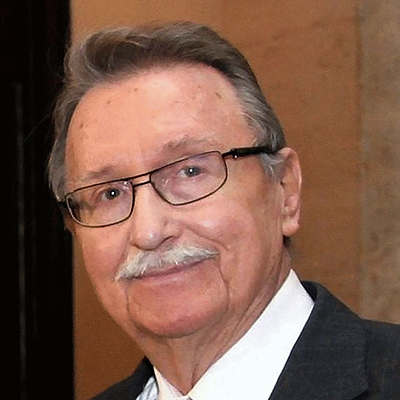 Velimir Neidhardt, architect, was born in Zagreb in 1943. He graduated in 1967 from the Faculty of Architecture, University of Zagreb. In the period 1969–1970, he collaborated in master classes of fine arts and graduated from the Master Workshop of architect Drago Galić. He spent the academic year 1974–1975 as scholarship holder of the Zlatko and Joyce Baloković Foundation at Harvard University and the Massachusetts Institute of Technology, in Cambridge, USA. Between 1975 and 1976, he trained professionally at Skidmore, Owings and Merrill, Architects – Engineers, in Chicago, USA. In 1977, he became deserving member of the Association of the Croatian Architects. He has been associate of the American Institute of Architects (Associate AIA) since 1996. In the period 1995–1999, he was President of the Croatian Architects’ Association.
Velimir Neidhardt, architect, was born in Zagreb in 1943. He graduated in 1967 from the Faculty of Architecture, University of Zagreb. In the period 1969–1970, he collaborated in master classes of fine arts and graduated from the Master Workshop of architect Drago Galić. He spent the academic year 1974–1975 as scholarship holder of the Zlatko and Joyce Baloković Foundation at Harvard University and the Massachusetts Institute of Technology, in Cambridge, USA. Between 1975 and 1976, he trained professionally at Skidmore, Owings and Merrill, Architects – Engineers, in Chicago, USA. In 1977, he became deserving member of the Association of the Croatian Architects. He has been associate of the American Institute of Architects (Associate AIA) since 1996. In the period 1995–1999, he was President of the Croatian Architects’ Association.
1999. Neidhardt received his master ‘s degree from the Faculty of Architecture in Zagreb in 1978; the topic of his dissertation was Model Development in the Scientific Method of Urban Planning, and his doctorate in 1990 with the dissertation entitled Anthropo-social Factor in the Theoretical Approach to Architectural and Urban Design. In 1979, he started working at the Faculty of Architecture in Zagreb as part-time assistant; in 1991, he was promoted to part-time assistant professor; and in 1993, he became associate professor. His full-time employment at the Faculty began in 1994; he was elected full professor in 1999.
He engaged in numerous architectural projects either as author or as co-author. These projects range from the National and University Library in Zagreb, the INA-Commerce building and the Croatia Insurance Office headquarters to the new passenger terminal of the Zagreb International Airport Franjo Tuđman. He led many architectural projects, studies involving architecture and urban planning, as well as tender works. Many among them were awarded. He was leader of the scientific research project entitled Architectural Aspects of Accident Prevention in Residential Buildings 1991–1995. He published a large number of scientific papers in editions of the Technical Encyclopedia, and in domestic and foreign journals. In 1997, V. Neidhardt published the book Man in Space: Anthropo-social Design Theory.
He became associate member of the Croatian Academy of Sciences and Arts in 1980; extraordinary Academy member in 1990; and full member thereof in 1991. He is Head of the Academy Cabinet for Architecture and Urban Planning. In the period 1998–2018, V. Neidhardt was President, and 2011–2018, he was Vice-president of the Board of Directors of the Foundation of the Croatian Academy of Sciences and Arts. On 15 November 2018, he was elected President of the Croatian Academy of Sciences and Arts, which office he took over on 1st January 2019.
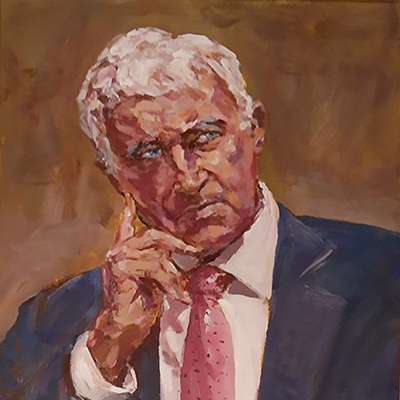 Zvonko Kusić (Zagreb, 1946), doctor of medicine, specialist in nuclear medicine and radiotherapy. He graduated (1974) and received his doctorate (1984) from the Faculty of Medicine of the University of Zagreb, specialised in nuclear medicine in 1979, and in radiotherapy in 1995. He has been working at the Oncology and Nuclear Medicine Department of the Sisters of Mercy Clinical Hospital (today Clinical Hospital Centre) since 1976. He was Head of the Department 1990–2003, and Hospital Director 1999–2003.
Zvonko Kusić (Zagreb, 1946), doctor of medicine, specialist in nuclear medicine and radiotherapy. He graduated (1974) and received his doctorate (1984) from the Faculty of Medicine of the University of Zagreb, specialised in nuclear medicine in 1979, and in radiotherapy in 1995. He has been working at the Oncology and Nuclear Medicine Department of the Sisters of Mercy Clinical Hospital (today Clinical Hospital Centre) since 1976. He was Head of the Department 1990–2003, and Hospital Director 1999–2003.
He has been full professor at the Faculty of Medicine in Zagreb since 1992, and was Dean of the Faculty 1997–2000. He is initiator of the founding and President of the Croatian Thyroid Society, Head of the Reference Centre for Thyroid Diseases, and Chair of the Commission for Combating Goitre of the Ministry of Health. He is furthermore Head of the Committee for Genomics and Proteomics in Oncology, and Head of the Institute of Immunology and Tumour Genetics of the Croatian Academy of Sciences and Arts. He professionally and scientifically engages in the fields of nuclear medicine and oncology, with etiology being the narrower field.
Zvonko Kusić has been associate member of the Croatian Academy of Sciences and Arts since 1992, and full member since 2000. He was Secretary of the Department of Medical Sciences and member of Presidency 2004–2010, and Academy President 2011–2018. During his term of office, the Academy celebrated its 150th anniversary and the 200th anniversary of the birth of its founder Josip Juraj Strossmayer. He will be remembered for having opened the Croatian Academy to the public, insisting on its social relevance, launching the Academy’s journal Glasnik HAZU (Herald), and the manifestation The Days of Open Doors. Furthermore, new Academy institutes were opened in Rijeka, Križevci, Đakovo and Velika Gorica, whereas in Zagreb, the Croatian Museum of Medicine and Pharmacy and the Institute of Transport were established during his mandate. Moreover, the Memorial Room of the Croatian Nobel Laureates was opened, and concerts began to be held at the Academy Palace.
During his presidency, the Academy adopted its strategic plan for the first time, and was the first institution to publish a list of the Croatian natural goods in the book entitled Croatian Natural Resources. It furthermore participated outstandingly in the development of the Strategy of Education, Science and Technology, and for the first time received funds from the European Structural and Investment Funds for its projects.
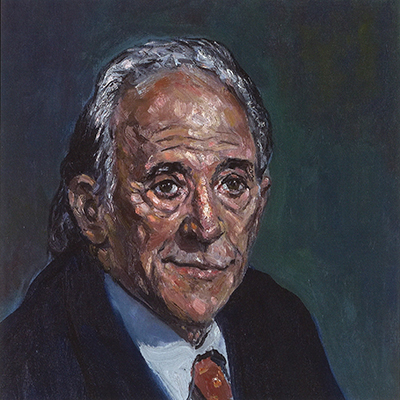 Ivo Padovan, doctor of medicine – otorhinolaryngologist (Blato, 1922 – Zagreb, 2010), graduated from the Faculty of Medicine, University of Zagreb in 1947, and completed his residency in otorhinolaryngology in 1950. He worked at the Clinic for Otorhinolaryngology and Cervicofacial Surgery at the Sisters of Mercy Clinical Hospital in Zagreb, and in the period 1966–1988, he was the Head thereof. He established within the Clinic the Centre for Audiology and the Centre for Tumours and Reconstructive Surgery. As of 1962, he was Director of the Institute for the Study and Protection of Ear and Respiratory Organs. He was founder (1966) and longtime President of the Croatian League Against Cancer, and founder of the Institute for Thalassotherapy in Crikvenica (1959) and the Central Institute of Tumours (now the Tumour Clinic) in Zagreb (1968).
Ivo Padovan, doctor of medicine – otorhinolaryngologist (Blato, 1922 – Zagreb, 2010), graduated from the Faculty of Medicine, University of Zagreb in 1947, and completed his residency in otorhinolaryngology in 1950. He worked at the Clinic for Otorhinolaryngology and Cervicofacial Surgery at the Sisters of Mercy Clinical Hospital in Zagreb, and in the period 1966–1988, he was the Head thereof. He established within the Clinic the Centre for Audiology and the Centre for Tumours and Reconstructive Surgery. As of 1962, he was Director of the Institute for the Study and Protection of Ear and Respiratory Organs. He was founder (1966) and longtime President of the Croatian League Against Cancer, and founder of the Institute for Thalassotherapy in Crikvenica (1959) and the Central Institute of Tumours (now the Tumour Clinic) in Zagreb (1968).
He was particularly engaged in reconstructive surgery and oncology of the head and neck, and the hearing and speech rehabilitation. He introduced the method of direct approach to the pituitary gland, elaborated the method of open nose surgery, and introduced his own method of the mosaic ear plastic. He authored the university textbook of otorhinolaryngological surgery in three volumes, entitled Otorhinolaryngology (1982–1987). He was editor-in-chief of the Medical Encyclopedia (1986), the Medical Lexicon (1992), and the Encyclopedic Dictionary of Human and Veterinary Medical Terminology (2006).
In the period 1968–1987, he was full professor at the Faculty of Medicine in Zagreb. He became full member of the Croatian Academy of Sciences and Arts in 1983. He held several posts at the Croatian Academy: first he was Secretary of the Department of Medical Sciences (1989–1991), later Vice-president of the Academy (1991–97), and finally Academy President in two terms (1998–2003).
During his presidential term, the façade of the Academy Palace was restored; the reconstruction and adaptation of the Chemical Institute to the Academy Library commenced (projects and building permits were drafted 2000–2004); the courtyard building in Gundulićeva 24 was renovated in 2002 and 2003 for the needs of several Academy units (Fine Arts Archives; Institute of Ornithology; Division for the History of Medical Sciences); and a permit was granted and a hydrant network system was developed to protect the Trsteno Arboretum complex from fire. He advocated the return of the Academy assets and the development of the Academy publishing activity, having thereby significantly contributed to the expansion of inter-academy cooperation and the promotion of excellency in the domains of sciences and arts.
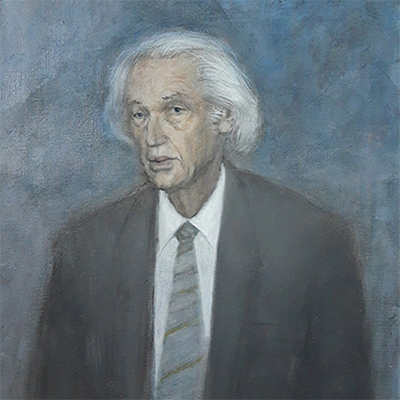 Ivan Supek (Zagreb, 1915 – Zagreb, 2007), was physicist, university professor, philosopher, writer and humanist. He was one of the most prominent scientists and intellectuals of the 20th century. After his doctorate in physics and philosophy at the University of Leipzig (in 1940), under the mentorship of physicist and Nobel Laureate Werner Heisenberg, with whom he had worked in the domain of quantum field theory until 1943, Ivan Supek returned to Zagreb, and soon (in 1946) took over the Chair for Theoretical Physics. He there led a group of students, who subsequently elevated the Croatian achievements in physics to the European level. He furthermore led the construction of and founded the Ruđer Bošković Institute (in 1950); he held the post of the Institute Director for eight years and launched postgraduate studies (in 1957), which were later integrated within the University. After having been elected Zagreb University Rector (in 1969), he reformed the University, and subsequently initiated the establishment of the international Inter-University Centre in Dubrovnik (in 1972). He gained international renown thanks to his views and fight against war, violence, nuclear weapons, and the misuse of scientific achievements. He regularly took part in meetings of the Pugwash Movement and founded the Croatian Pugwash Movement.
Ivan Supek (Zagreb, 1915 – Zagreb, 2007), was physicist, university professor, philosopher, writer and humanist. He was one of the most prominent scientists and intellectuals of the 20th century. After his doctorate in physics and philosophy at the University of Leipzig (in 1940), under the mentorship of physicist and Nobel Laureate Werner Heisenberg, with whom he had worked in the domain of quantum field theory until 1943, Ivan Supek returned to Zagreb, and soon (in 1946) took over the Chair for Theoretical Physics. He there led a group of students, who subsequently elevated the Croatian achievements in physics to the European level. He furthermore led the construction of and founded the Ruđer Bošković Institute (in 1950); he held the post of the Institute Director for eight years and launched postgraduate studies (in 1957), which were later integrated within the University. After having been elected Zagreb University Rector (in 1969), he reformed the University, and subsequently initiated the establishment of the international Inter-University Centre in Dubrovnik (in 1972). He gained international renown thanks to his views and fight against war, violence, nuclear weapons, and the misuse of scientific achievements. He regularly took part in meetings of the Pugwash Movement and founded the Croatian Pugwash Movement.
Ivan Supek became corresponding member of the Croatian Academy of Sciences and Arts in 1948, and full member thereof in 1961. He founded the Institute for Philosophy of Science and Peace (in 1965) within the Academy, and the centre of the Pugwash Movement, as well as launched the quarterly publication entitled Enciklopedia moderna, with humanistic orientation to sciences and arts and political pluralism. During his presidency (1991–1997), he encouraged the merging of history and philosophy of science within the Academy Institute of History and Philosophy of Science (in 1992). He became full member of the Department of Mathematical, Physical, Chemical and Technical Sciences in 1961, and it was in his presidential term that he proposed and implemented the establishment of a separate Academy Department of Technical Sciences (in 1997). He is responsible for opening the Academy to the public; he furthermore established numerous scientific councils, which brought together the best Croatian experts in individual fields. He moreover introduced the Award of the Croatian Academy of Sciences and Arts. In the memory of Ivan Supek, the 10th Zagreb Grammar School has been named after him. There, the Days of Ivan Supek are held annually.
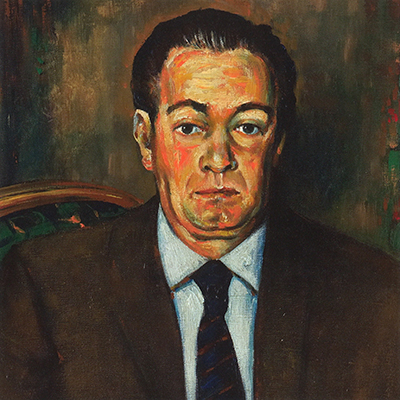 Jakov Sirotković economist and politician (Rab, 1922 – Zagreb, 2002), completed his primary education in Šibenik, and his secondary education in Zagreb. In the period 1941–1943, he studied medicine, whilst after World War II, he enrolled at the Faculty of Economics and Business in Zagreb, where he graduated in 1948, and subsequently received his doctorate in 1951. He taught at the same Faculty 1950–1991.
Jakov Sirotković economist and politician (Rab, 1922 – Zagreb, 2002), completed his primary education in Šibenik, and his secondary education in Zagreb. In the period 1941–1943, he studied medicine, whilst after World War II, he enrolled at the Faculty of Economics and Business in Zagreb, where he graduated in 1948, and subsequently received his doctorate in 1951. He taught at the same Faculty 1950–1991.
He was elected full professor in 1961. He specialised at the London School of Economics 1954–1955, at the University of Manchester 1960-1961, and at Berkeley in 1965. He was Rector of the University of Zagreb in the period 1966–1968, later Vice-president of the Federal Executive Council of the Socialist Federative Republic of Yugoslavia (1970–1974), and subsequently President of the Executive Council of the Socialist Republic of Croatia (1974–1978). Jakov Sirotković became full member of the Croatian Academy of Sciences and Arts in 1975. He was editor-in-chief of the Encyclopedia of Yugoslavia (1984–1991).
He published a series of books and scientific papers covering the fields of theory and policy of economic development; macroeconomic analysis; and economic policy. His most important works are Economic Policy of Yugoslavia from 1945 to 1988: Goals and Results (1989), and Macroeconomic Structure of the Croatian Economy: Development Opportunities and Limitations (2000) (Rab, 1922. – Zagreb, 2002.), ekonomist i političar. Osnovnu školu završio je u Šibeniku, a srednju u Zagrebu 1941. U razdoblju 1941. – 1943. bio je student medicine, a poslije Drugoga svjetskoga rata studira na Ekonomskome fakultetu u Zagrebu, gdje je 1948. diplomirao, a godine 1951. i doktorirao. Na istome je fakultetu predavao 1950. – 1991.
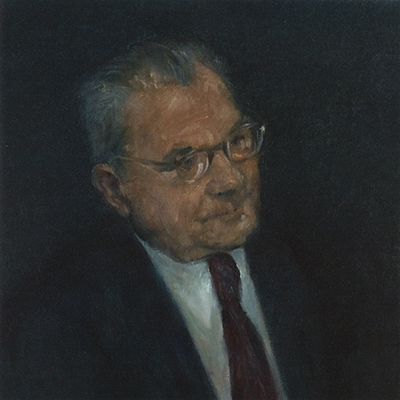 Grga Novak (Hvar, 1888 – Zagreb, 1978), historian and archaeologist. In the period 1907–1911, he studied history, geography and archaeology in Zagreb, Vienna and Prague. He received his doctorate in History in Zagreb in 1913. He taught at the secondary school Velika realka in Split 1911–1920, and was assistant to Frane Bulić at the Archaeological Museum in Split 1914–1920.
Grga Novak (Hvar, 1888 – Zagreb, 1978), historian and archaeologist. In the period 1907–1911, he studied history, geography and archaeology in Zagreb, Vienna and Prague. He received his doctorate in History in Zagreb in 1913. He taught at the secondary school Velika realka in Split 1911–1920, and was assistant to Frane Bulić at the Archaeological Museum in Split 1914–1920.
In 1920, he became assistant professor; 1922–1924, he was associate professor of general history of the Middle Ages at the Faculty of Humanities and Social Studies in Skopje; whilst 1924–1959, he was full professor of the history of the Old Age at the Faculty of Humanities and Social Sciences in Zagreb. He was Dean of the Faculty of Humanities and Social Studies 1934–1935, and Rector of the University of Zagreb 1946–1947. He was elected full member of the Croatian Academy of Sciences and Arts in 1947, and was member of several foreign academies. His study of history covered a wide range – from the Old Age to the New Era. His archaeological research on Hvar in Grapčeva and Markova caves resulted in the discovery of a new Neolithic Hvar culture in the Adriatic (Prehistoric Hvar: Grapčeva Cave, 1955).
He studied the Greek culture in the Adriatic and the Roman rule in Dalmatia; he furthermore studied the old East – in particular Egypt (In the land of the Pharaohs, 1946; Egypt: Prehistory, Pharaohs, Conquerors, Culture, 1967). He paid special attention to the history of the Dalmatian towns and certain issues from their past: Folk Upheaval on Hvar 1510–1514 (1918); Split in World Transport (1921); The Jews in Split (1924); Hvar (1924); Dubrovnik Diplomacy at the Peace Congress in Požarevac (1929); History of Split (I–III, 1957–1965); Vis (1961); History of Dubrovnik from the Earliest Times to the Beginning of the 7th Century (1972); editor (with V. Maštrović) of the proceedings entitled Cross-section through the History of the City of Zadar (1965) and History of Vrana: Political, Cultural and Economic Significance of Vrana through Centuries (1971). He furthermore studied the period of the Croatian National Revival in Dalmatia. In several discussions and monographs, he tackled prominent historical figures.
In the series entitled Monumenta spectantia historiam Slavorum meridionalium, he published several volumes of reports by the Venetian diplomats on Dalmatia (Venetian Instructions and Reports, I–IV, 1964–1972). During the presidency of Grga Novak, the Croatian Academy celebrated its 100th anniversary in 1966. After his term of office had ended, five months before his death, he was elected Honorary President of the Croatian Academy of Sciences and Arts.
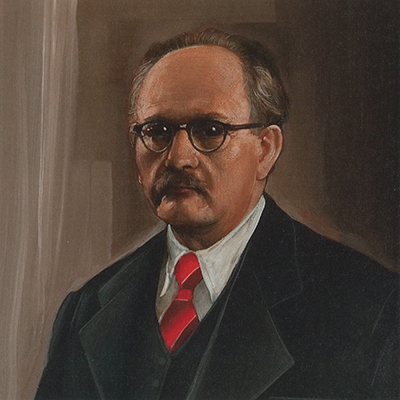 Andrija Štampar (Brodski Drenovac, 1888 – Zagreb, 1958), doctor of medicine, public health strategist and reformer, returned to his homeland after having completed his medical studies in Vienna in 1911. He worked in Zagreb as municipal doctor, and later health adviser of the Social Welfare Commission of the National Council. In the period 1919–1930, he held the post of Head of the Hygiene Department at the Ministry of Public Health in Belgrade. During this time, in the then Yugoslavia, he established a health service organisation with 250 hygiene institutions. He fought for social medicine and free healthcare accessible to all layers of the population, whereby he always stressed the importance of preventive medicine.
Andrija Štampar (Brodski Drenovac, 1888 – Zagreb, 1958), doctor of medicine, public health strategist and reformer, returned to his homeland after having completed his medical studies in Vienna in 1911. He worked in Zagreb as municipal doctor, and later health adviser of the Social Welfare Commission of the National Council. In the period 1919–1930, he held the post of Head of the Hygiene Department at the Ministry of Public Health in Belgrade. During this time, in the then Yugoslavia, he established a health service organisation with 250 hygiene institutions. He fought for social medicine and free healthcare accessible to all layers of the population, whereby he always stressed the importance of preventive medicine.
After the introduction of the Sixth of January Dictatorship, in 1930, he was impeached, and forced to retire the following year. After that, he was active as expert in the Health Organisation of the League of Nations in the European countries and the USA. He spent the period between 1933 and 1936 in China, where he reorganised the local public health service.
After World War II, Andrija Štampar was appointed Rector of the University of Zagreb (1945/1946), whilst in 1952, he became Dean of the Faculty of Medicine in Zagreb and held this post for the following five years. In 1946, he was elected first Vice-president of the UN Economic and Social Council and President of the Interim Commission, which acted as the World Health Organization until its ratification. He became full member of the Yugoslav Academy of Sciences and Arts in
1947. He was elected Academy President in the same year, and subsequently three more times in a row.
Under his leadership, the Academy developed into a large scientific research institution with significant creative and publicist activities in all the domains of sciences and arts. At this time, numerous independent institutes and research units were established within the Academy, such as the Academy Institute for Occupational Hygiene and the Institute for the History of Natural Sciences. At the session of the World Health Assembly held in Mexico in 1955, he was awarded the highest international acknowledgement in the field of public health – the Léon Bernard Award.
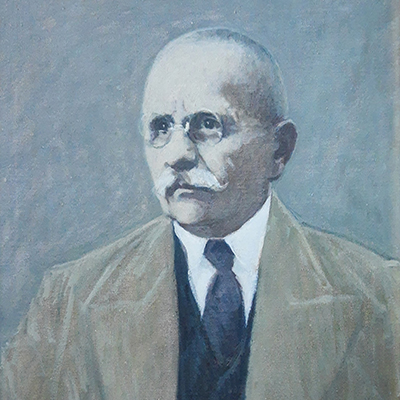 Tomo Matić, historian of literature and culture (Brod na Savi, 1874 – Zagreb, 1968), completed his studies in Slavonic and Romance languages and literature in 1896 in Vienna, where he received his doctorate in the same year. He was reviewer of the Croatian edition of the Austro-Hungarian List of the State Laws in Vienna, later grammar school teacher and principal in Zemun, Split, Osijek and Zagreb, and at the Commercial Academy in Zagreb. In 1893, at the age of 19, he published his first scientific text – about Matija Antun Relković – in Vijenac.
Tomo Matić, historian of literature and culture (Brod na Savi, 1874 – Zagreb, 1968), completed his studies in Slavonic and Romance languages and literature in 1896 in Vienna, where he received his doctorate in the same year. He was reviewer of the Croatian edition of the Austro-Hungarian List of the State Laws in Vienna, later grammar school teacher and principal in Zemun, Split, Osijek and Zagreb, and at the Commercial Academy in Zagreb. In 1893, at the age of 19, he published his first scientific text – about Matija Antun Relković – in Vijenac.
In his mature career, he published critical editions of older Croatian writers (Slavonian, Dalmatian and others) and many other works covering various fields: the bibliography published in the Anthology on Tomo Matić (1998) lists 174 bibliographic units. Tomo Matić was corresponding member of the Academy of Sciences and Arts 1921–1938, and full member thereof 1938–1946. In 1941, the Yugoslav Academy of Sciences and Arts, of which Albert Bazala was President, and Tomo Matić Vice-president, was abolished. The authorities of the Independent State of Croatia appointed ten members of the Academy new members, who founded the Croatian Academy of Sciences and Arts.
Tomo Matić was elected Academy President in 1942. After the difficulties the Academy had previously had with the authorities, there came new ones after 1945. In 1946, the Croatian Minister of Education appointed five Academy members to run the Academy affairs. Consequently, after the reorganisation, Tomo Matić ceased to belong to the membership of the reconstructed Academy.
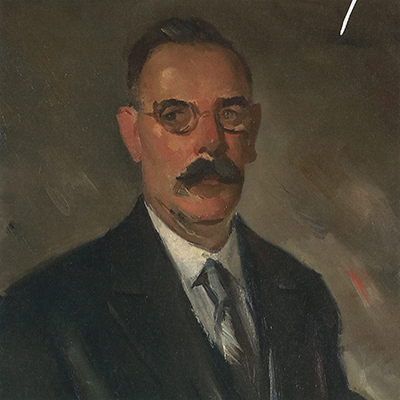 Albert Bazala, philosopher (Brno, 1877 – Zagreb, 1947), studied philosophy and classical philology in Zagreb (1895–1899), where he received his doctorate from Franjo pl. Marković; his dissertation was entitled Psychology Theory of Appercepcion (1900). After submitting his habilitation work entitled Marulić’s Moral and Philosophical Work, he became private assistant professor in 1904. He continued his philosophy studies in Germany in 1905 and 1906 with Theodor Lipps, Hans Cornelius, Rudolf Eucken and Wilhelm Wundt. In Prague, he met Tomáš Masaryk; consequently, he wrote the essay entitled Masaryk, the Thinker (1934) about him. As of 1906, he was teacher of the girls’ lyceum in Zagreb. In 1909, he became associate professor, and in 1912, he was elected full professor of philosophy at the Faculty of Humanities and Social Studies in Zagreb.
Albert Bazala, philosopher (Brno, 1877 – Zagreb, 1947), studied philosophy and classical philology in Zagreb (1895–1899), where he received his doctorate from Franjo pl. Marković; his dissertation was entitled Psychology Theory of Appercepcion (1900). After submitting his habilitation work entitled Marulić’s Moral and Philosophical Work, he became private assistant professor in 1904. He continued his philosophy studies in Germany in 1905 and 1906 with Theodor Lipps, Hans Cornelius, Rudolf Eucken and Wilhelm Wundt. In Prague, he met Tomáš Masaryk; consequently, he wrote the essay entitled Masaryk, the Thinker (1934) about him. As of 1906, he was teacher of the girls’ lyceum in Zagreb. In 1909, he became associate professor, and in 1912, he was elected full professor of philosophy at the Faculty of Humanities and Social Studies in Zagreb.
His most comprehensive philosophical work, and the first of its kind in our country, was History of Philosophy (Volume 1: 1906; Volume 2: 1909; Volume 3: 1912). He was elected full member of the Croatian Academy of Sciences and Arts in 1922. In philosophy, he represented a special voluntarist activism, which he presented in two discussions: Philosophical Studies: I. Metalogical Root of Philosophy (Academy journal RAD No. 229, 1924), and Philosophical Studies: II. Consciousness and the World, Subject and Object (Academy journal RAD No. 272, 1941). In the spirit of the Enlightenment, he founded and led the Open University, and held the post of President of the Matica hrvatska (1927). As President of the Academy, he has been remembered by his speeches On the Freedom of Science and Art (1934), and The Meaning of Art in the Life of the People
(1935). In December 1934, on behalf of the Croatian public, he took to Prince Paul in Belgrade the Zagreb Memorandum, in which the Croatian politicians and intellectuals demanded for the dictatorship to be abolished and civil liberties to be returned.
In accordance with the political philosophy he presented in separately published lectures Ethics and Politics (1907) and Ethics and the People’s Economy (1915), he acted as the people’s representative and commissioner for education and theology in the National Government in Zagreb.
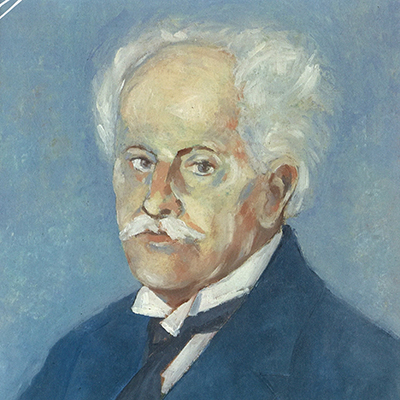 Gavro Manojlović, historian (Zadar, 1856 – Zagreb, 1939), completed his secondary education in Senj, Karlovac and Zagreb. He studied in Zagreb and Vienna, where he received his doctorate in the philosophy of history and classical philology in 1896. As of 1880, he worked as secondary school teacher in Zagreb, Požega and Osijek, where he was school principal too. In 1902, he was elected full professor of general history of the Old Age at the Faculty of Humanities and Social Studies in Zagreb. In 1908, he was forced to retire for political reasons; whereas in the period 1910–1924, he was employed again.
Gavro Manojlović, historian (Zadar, 1856 – Zagreb, 1939), completed his secondary education in Senj, Karlovac and Zagreb. He studied in Zagreb and Vienna, where he received his doctorate in the philosophy of history and classical philology in 1896. As of 1880, he worked as secondary school teacher in Zagreb, Požega and Osijek, where he was school principal too. In 1902, he was elected full professor of general history of the Old Age at the Faculty of Humanities and Social Studies in Zagreb. In 1908, he was forced to retire for political reasons; whereas in the period 1910–1924, he was employed again.
Gavro Manojlović was representative of the Croatian-Serbian Coalition in the Croatian Parliament (1908–1910 and 1913–1918), and member of the Temporary National Commission. He was elected full member of the Academy in 1908, and corresponding member of the Serbian Royal Academy in 1910. He edited the youth newspaper Pobratim, and the Teacher Herald (1905–1908). In his youth, he published a collection of poems entitled Mladi dani Veljkovi / Young Days of Veljko (1880). In 1923, his work History of the Old Orient was published, and in 1927, Driving Force and Regularity in Universal History. He left a significant mark in the field of the Byzantine studies. In his scientific work, he furthermore dealt with the history of the Old Age and with the philosophy of history; he wrote historical textbooks as well. He published his works in the Gazette of the Royal State Archive in Zagreb and in the Herald of the National Museum in Bosnia and Herzegovina.
Gavro Manojlović founded the Academy Oriental Collection, which was to the most part collected during his presidential term. In 1929, he vigorously opposed the idea of founding a single Yugoslav Academy based in Belgrade.
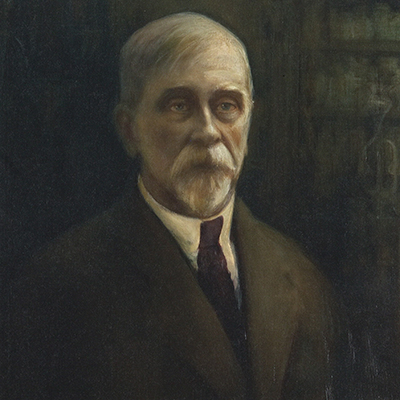 Gustav Janeček, chemist and university professor (Konopiště, Czech Republic, 1848 – Zagreb, 1929), though Czech by birth, stayed in Croatia for the rest of his life. After his arrival to Zagreb (in 1879), he worked as chemistry professor at the then Philosophical Faculty (today Faculty of the Humanities and Social Studies) for nearly half a century. He was Dean of the Faculty in three terms, and Rector of the University of Zagreb 1908–1809.
Gustav Janeček, chemist and university professor (Konopiště, Czech Republic, 1848 – Zagreb, 1929), though Czech by birth, stayed in Croatia for the rest of his life. After his arrival to Zagreb (in 1879), he worked as chemistry professor at the then Philosophical Faculty (today Faculty of the Humanities and Social Studies) for nearly half a century. He was Dean of the Faculty in three terms, and Rector of the University of Zagreb 1908–1809.
He established the Croatian chemical environment, raised several generations of Croatian chemists, and mentored the first twenty doctoral dissertations in chemistry. He was one of the founders of the Educational Course in Pharmacy (in 1842) at the then Philosophical Faculty, where many Croatian pharmacists started their education. He thereby laid the foundations of the present Faculty of Pharmacy and Biochemistry. Upon his arrival in Zagreb, he performed chemical analyses for the purposes of court expertise; hence, he is considered founder of the Croatian forensic chemistry.
Gustav Janeček founded two university institutes: University Chemical Institute, which later changed its name to the Institute of Chemistry, on the Strossmayer Square (in 1884); and the Institute of Chemistry on the Marulić Square (in 1919). In addition thereto, he founded the wholesaler Isis (in 1918) and the Kaštel pharmaceutical factory (in 1921), today known under the name of Pliva. Amazed by the beauty of the Plitvice Lakes, he founded the Society for the Landscaping and Embellishment of the Plitvice Lakes and the Surroundings (in
1893), which encouraged a series of activities leading to the proclamation of the Plitvice Lakes National Park (in 1949).
In 1882, he became corresponding member of the Academy of Sciences and Arts; in 1887, he was elected full member thereof; and 1921–1924, he was Academy President. He furthermore held the post of Acting President of the Academy from 15 September 1914, when the office holder Franjo pl. Marković passed away, to 20 June 1915, when Tomislav Maretić was elected Academy President.
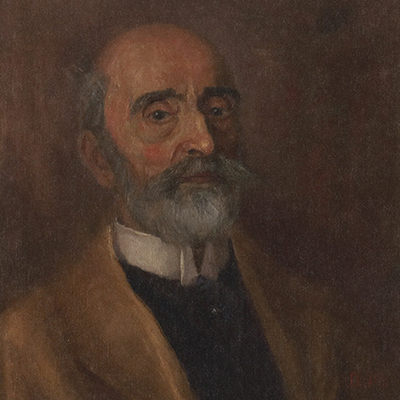 Vladimir Mažuranić, legal historian and lexicographer (Karlovac, 1845 – Zagreb, 1928), began his legal studies in Vienna, and completed them at the Law Academy in Zagreb in 1866, where he passed the judges’ exam in 1869. He worked in state administration, and in judicial and law departments in Karlovac and Ogulin. He was Vice-president and later President of the Supreme Court of Croatia (1898–1912). He became full member of the Croatian Academy of Sciences and Arts in 1910. He was furthermore honorary member of the Czech Academy of Sciences, the Polish Academy of Sciences, and the Learned Society in Lvov in the Ukraine.
Vladimir Mažuranić, legal historian and lexicographer (Karlovac, 1845 – Zagreb, 1928), began his legal studies in Vienna, and completed them at the Law Academy in Zagreb in 1866, where he passed the judges’ exam in 1869. He worked in state administration, and in judicial and law departments in Karlovac and Ogulin. He was Vice-president and later President of the Supreme Court of Croatia (1898–1912). He became full member of the Croatian Academy of Sciences and Arts in 1910. He was furthermore honorary member of the Czech Academy of Sciences, the Polish Academy of Sciences, and the Learned Society in Lvov in the Ukraine.
He donated his family collection of documents to the Croatian Academy in 1911. Thanks to him, the Academy Arts Department was established in 1919. Vladimir Mažuranić had noticed the disorder in and the inadequacy of the legal terminology in judicial and administrative practice; he thus wrote about the need for, the principles of composing and the importance of a Croatian legal-historical dictionary in the programmatic paper On a Dictionary of the Croatian Legal Terminology (Academy journal RAD No. 150, 1902). He systematically analysed the Croatian legal and historical monuments as a starting point for the presentation of the uninterrupted use of the official Croatian language and the development of legal terminology, and for the research of centuries-old social circumstances. In this context, he compiled the Tributes for the Croatian Legal-Historical Dictionary (published in 10 volumes 1908–1922; Annexes in 1923) – a synthesis of his work on the collection and promotion of the Croatian legal heritage, and an indispensable
manual and capital work of the Croatian lexicography. He opposed to the use of foreign words, and proposed the introduction of terms in accordance with the Croatian legal tradition, as well as neologisms.
Vladimir Mažuranić included in this lexically extraordinarily rich dictionary economic, sociological, ethnographic and cultural-historical terms in addition to the legal ones. Despite being a genuinely excellent work, this dictionary has so far not received adequate scientific acknowledgement.
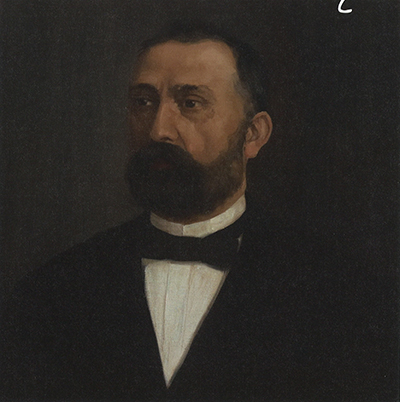 Tomislav Maretić, linguist and lexicographer (Virovitica, 1854 – Zagreb, 1938), graduated in 1878 in classical and Slavic philology from the Faculty of Humanities and Social Studies in Zagreb. He published his poems and translations as associate of the newspaper Vienac. Maretić was a broadly educated polyglot, a very prolific linguist, and the principal representative of the Croatian linguists supporting phonemic orthography. He was responsible for the consistent codification of the new-Štokavian dialect as literary language, and for the introduction of phonemic orthography. His life’s work is Grammar and Stylistics of the Croatian or Serbian Literary Language (1899; 1931; 1963 without stylistics), which actually describes an etalon language (a part of the Čakavian dialect). He believed that only the dialect chosen to be the basis is the right one; at that time, literary language had not yet been fully comprehended as a separate part of language with its own rules, independent of the basis.
Tomislav Maretić, linguist and lexicographer (Virovitica, 1854 – Zagreb, 1938), graduated in 1878 in classical and Slavic philology from the Faculty of Humanities and Social Studies in Zagreb. He published his poems and translations as associate of the newspaper Vienac. Maretić was a broadly educated polyglot, a very prolific linguist, and the principal representative of the Croatian linguists supporting phonemic orthography. He was responsible for the consistent codification of the new-Štokavian dialect as literary language, and for the introduction of phonemic orthography. His life’s work is Grammar and Stylistics of the Croatian or Serbian Literary Language (1899; 1931; 1963 without stylistics), which actually describes an etalon language (a part of the Čakavian dialect). He believed that only the dialect chosen to be the basis is the right one; at that time, literary language had not yet been fully comprehended as a separate part of language with its own rules, independent of the basis.
Being a young grammarian, Maretić did not differentiate literary language from its dialectal base. He moreover neither took into account the centuries-old development of the Croatian literary language nor its normative standardisation in numerous grammar books written before his. Maretić was a language Unitarian. Particular important features of the Croatian language bothered him, and he tried to remove them to the highest extent possible. It is a well-known fact that he, same as other Croatian linguists who supported phonemic orthography, had not succeeded in these intentions. Maretić published papers on the language of older Dalmatian and Slavonian writers; the history of the Croatian writing; folk epic poetry; names; borrowings from the Czech and Russian languages; the importance of an artificial international language; etc.
He was elected full member of the Academy of Sciences and Arts in 1886. For thirty years, he had edited the historical Dictionary of the Croatian or Serbian Language – six books (out of 23) with about 6,000 pages (maslo – pršutina). Among translations of classical works, his translations of The Odyssey (1882) and The Iliad (1883) are held in high esteem. The list accompanying his obituary notice in the Annals numbers 134 works.
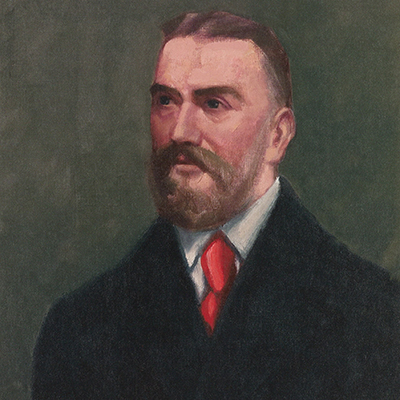 Tadija Smičiklas, historian and politician (Reštovo Žumberačko, 1843 – Zagreb, 1914). After having graduated from secondary school in Zagreb, he began teaching history and the Croatian language at the Osijek grammar school in 1863. In 1864, he studied history and geography in Prague; in 1865, he studied history in Vienna, where he graduated in 1869. After completing his studies, he worked as history and Croatian language teacher at the Rijeka grammar school (1870–1873).
Tadija Smičiklas, historian and politician (Reštovo Žumberačko, 1843 – Zagreb, 1914). After having graduated from secondary school in Zagreb, he began teaching history and the Croatian language at the Osijek grammar school in 1863. In 1864, he studied history and geography in Prague; in 1865, he studied history in Vienna, where he graduated in 1869. After completing his studies, he worked as history and Croatian language teacher at the Rijeka grammar school (1870–1873).
In 1873, he started teaching at the Great Grammar School in Zagreb, where he became involved in the work of Matica hrvatska. The second part of his Croatian History was published in the edition of Matica hrvatska in 1879, and the first part thereof in 1882. This work is the first critical synthesis of the Croatian history, covering the period until 1848. Between 1882 and 1905, Tadija Smičiklas was full professor at the Department of the Croatian History and Auxiliary Historical Sciences at the Faculty of Humanities and Social Studies in Zagreb. He was committed to the establishment of the Society of the Croatian Writers and the Faculty of Medicine. He was Dean of the Faculty of Humanities and Social Studies 1886–1887, and Rector of the University of Zagreb 1888–1889.
Tadija Smičiklas was President of Matica hrvatska in the period 1889–1901. He became full member of the Academy of Sciences and Arts in 1883. In the period between 1896 and his death, he held the post of Head of the Academy Archives, whilst as of 1904, he edited one of the most important
Academy editions – Codex diplomaticus regni Croatiae, Dalmatiae et Slavoniae, Volumes I–XVIII, 1904–90). Eleven volumes of this edition were published during his lifetime, and later additional seven, including the basic Latin written documents related to the Croatian history from the arrival of the Croats to the year 1399. Smičiklas’s works include the biographies of the founder of the Academy – Bishop Josip Juraj Strossmayer, and of the first Academy President – Franjo Rački.
He engaged in politics in addition to scientific work, and was member of the Independent People’s Party in the Croatian Parliament in two intervals (1884–1887 and 1897–1902). In 1913, he was awarded the first honorary doctorate of the University of Zagreb. He bequeathed his rich library to the Academy of Sciences and Arts.
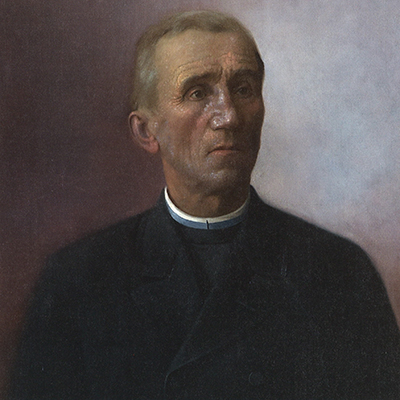 Josip Torbar, priest, natural scientist, pedagogue and politician (Krašić, 1824 – Zagreb, 1900), attended his studies in philosophy and theology at the Seminary in Zagreb, where he was ordained in 1843. He continued his studies at the University of Vienna, where he passed teacher certification exam in 1852. In 1854, he became teacher of physics and natural sciences at the newly opened secondary modern school in Zagreb, where he was twice elected principal. Ban Levin Rauch dismissed him for political reasons from the post of principal, to which he was reinstated by Ban Ivan Mažuranić.
Josip Torbar, priest, natural scientist, pedagogue and politician (Krašić, 1824 – Zagreb, 1900), attended his studies in philosophy and theology at the Seminary in Zagreb, where he was ordained in 1843. He continued his studies at the University of Vienna, where he passed teacher certification exam in 1852. In 1854, he became teacher of physics and natural sciences at the newly opened secondary modern school in Zagreb, where he was twice elected principal. Ban Levin Rauch dismissed him for political reasons from the post of principal, to which he was reinstated by Ban Ivan Mažuranić.
His fields of scientific interest were biology, geology, meteorology, history, and popularisation of science. His most famous discussion is Bošković’s Elementa Materiae Compared to Today’s Atomistics, in which he endeavoured to interpret phenomena in nature.
He had been member of the Academy of Sciences and Arts since its founding. On 9 May 1866, the Croatian Parliament included him among the initial twelve Academy members. He was Academy Secretary (1872–1874); Head of the Department of Mathematics and Natural Sciences (1887–1889); and Academy President (1890–1900).
Josip Torbar was member of the Croatian Parliament three times (in 1861, 1865 and 1875); he there stood for the independence and integrity of Croatia.
Together with Vatroslav Jagić and Franjo Rački, he launched the journal Književnik, which was later succeeded by the Academy journal RAD. He was furthermore editor of the Catholic Newspaper (in 1854) and the Economic Newspaper (1868–1872). He was an active mountaineer, one of the founders of the Croatian Mountaineering Association (1874), and the Chair thereof (1876–1878).
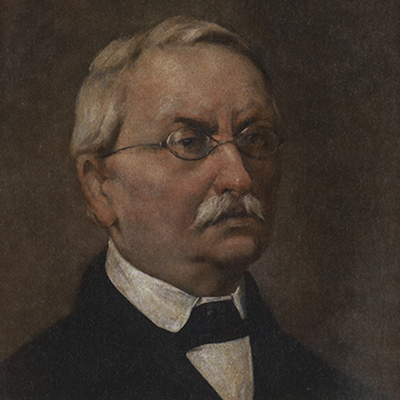 Pavao Muhić, lawyer (Požega, 1811 – Zagreb, 1897), was elected President of the Academy of Sciences and Arts after the Emperor and King Franz Joseph had refused to grant his approval for the election of Franjo Rački. He studied law in Zagreb, and obtained his doctorate in law in Pest in 1843. In 1835, at the Faculty of Law of the Royal Academy of Sciences in Zagreb, he succeeded Ivan Nepomuk Henfner, who was transferred to Pest. Consequently, he held the post of professor of political sciences until 1850. Subsequently, until 1871, he served as professor at the Law Academy in Zagreb, where he also held the post of Director.
Pavao Muhić, lawyer (Požega, 1811 – Zagreb, 1897), was elected President of the Academy of Sciences and Arts after the Emperor and King Franz Joseph had refused to grant his approval for the election of Franjo Rački. He studied law in Zagreb, and obtained his doctorate in law in Pest in 1843. In 1835, at the Faculty of Law of the Royal Academy of Sciences in Zagreb, he succeeded Ivan Nepomuk Henfner, who was transferred to Pest. Consequently, he held the post of professor of political sciences until 1850. Subsequently, until 1871, he served as professor at the Law Academy in Zagreb, where he also held the post of Director.
In the list of lecturers for the academic year 1852-1853, Muhić is mentioned as professor of political economy and financial science, who teaches in the Illyrian (i.e. Croatian) language. It is evident from the preserved archival material that in 1855, Muhić taught political economy and the Austrian financial law. He was elected full member of the Academy of Sciences and Arts in 1866. According to the notes by Muhić’s students, his lectures in the year 1865-1866 consisted of the following four units: 1. Introduction; 2. Political Economy; 3. People’s Economic Policy; and 4. Public Economy (finances).
He was member of the Croatian Parliament from 1861 to 1866, whilst 1872–1881, he served as Head of the Department of Theology and Teaching of the National Government of Croatia, Slavonia and Dalmatia.
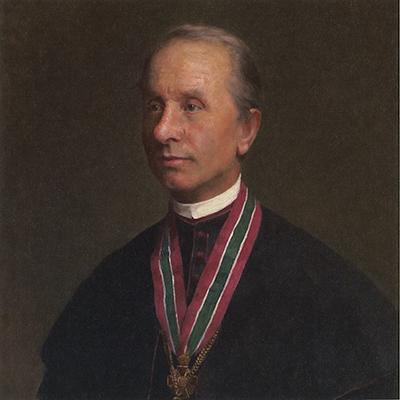 Franjo Rački (Fužine, 1828 – Zagreb, 1894), historian, linguist, publicist and politician. The first Academy President 1866–1886, when the Emperor and King Franz Joseph refused to confirm him. He was then elected Vice-president, which post he held until his death. He studied theology in Vienna 1849–1852, and was subsequently ordained in Senj. He later studied mathematics and physics in Vienna, and received his doctorate in theology in 1855. Until 1860, he specialised in the auxiliary historical sciences, especially in Latin palaeography and diplomacy. He furthermore researched archival material related to the history of Croatia in the archives in Rome and Naples.
Franjo Rački (Fužine, 1828 – Zagreb, 1894), historian, linguist, publicist and politician. The first Academy President 1866–1886, when the Emperor and King Franz Joseph refused to confirm him. He was then elected Vice-president, which post he held until his death. He studied theology in Vienna 1849–1852, and was subsequently ordained in Senj. He later studied mathematics and physics in Vienna, and received his doctorate in theology in 1855. Until 1860, he specialised in the auxiliary historical sciences, especially in Latin palaeography and diplomacy. He furthermore researched archival material related to the history of Croatia in the archives in Rome and Naples.
Franjo Rački founded the People’s Party together with Strossmayer. He published several articles, including Yugoslavism (1860), the basic political text of the mentioned party, in the party newspaper Pozor (later Obzor). He was elected member of the Croatian Parliament in 1861, 1868 and 1872. In collaboration with Vatroslav Jagić, he launched the historical and linguistic journal Književnik in 1864. At his incentive, the journal Rad (in 1867), the Annals (in 1877) and the Antiques (in 1869) were launched. He furthermore took part in the launch of Academy editions including materials important for the history, science, culture and art of the Croatian people: in 1868, the edition entitled Monumenta spectantia historiam Slavorum meridionalium (MSHSM) was launched; in 1869, Old Croatian Writers; and in 1877, Monumenta historico-juridica Slavorum meridionalium (MHJSM).
In the context of the establishment of the Strossmayer Gallery in Zagreb (in 1884), his influence as Academy President was crucial. Particularly important works by Franjo Rački are: The Bogomils and the Patarenes (1870), in which he dealt with the phenomenon of the Bosnian Church; Documenta historiae Croaticae periodum antiquam illustrantia (MSHSM, Vol. VIII, 1877), a collection of sources for the early-Mediaeval Croatian history; and the Internal State of Croatia before the 18th Century (1894), in which he proved, inter alia, that the
Mediaeval Croatian state had its own court office, from which 28 valuable documents have been preserved.
Izabrano na Skupštini održanoj 13. studenoga 2014.
mandat od 1. 1. 2015. – 31. 12. 2018.
UPRAVA AKADEMIJE
Predsjednik akademik ZVONKO KUSIĆ
Potpredsjednik akademik JAKŠA BARBIĆ
Potpredsjednik akademik VELIMIR NEIDHARDT
Glavni tajnik akademik PAVAO RUDAN
Tajnik dipl. iur. MARINA ŠTANCL
TAJNICI AKADEMIJINIH RAZREDA
akademik Franjo ŠANJEK †
akademik Andrej DUJELLA
akademik Ivan GUŠIĆ
akademik Marko PEĆINA
akademik August KOVAČEC
akademik Pavao PAVLIČIĆ
akademik Vladimir MARKOVIĆ
akademik Frano PARAĆ
akademik Stjepan JECIĆ
OSTALI ČLANOVI PREDSJEDNIŠTVA
akademkinja Milena ŽIC FUCHS
akademik Krešimir NEMEC
akademik Nikša GLIGO
akademik Mirko ZELIĆ
akademik Nenad TRINAJSTIĆ
UPRAVA AKADEMIJE
Predsjednik: akademik MILAN MOGUŠ †
Potpredsjednik: akademik PAVLE DEŠPALJ
Potpredsjednica: akademkinja ALICA WERTHEIMER-BALETIĆ
Glavni tajnik: akademik SLAVKO CVETNIĆ †
Tajnik: prof. dr. sc. SLOBODAN KAŠTELA
TAJNICI AKADEMIJINIH RAZREDA
Akademik Tomislav Raukar
Akademik Ksenofont Ilakovac
Akademik Željko Kućan
Akademik Zvonko Kusić
Akademik Petar Šimunović †
Akademik Nikola Batušić †
Akademik Ante Vulin †
Akademkinja Koraljka Kos
Akademik Mirko Zelić
OSTALI ČLANOVI PREDSJEDNIŠTVA
Akademik Nenad Trinajstić
Akademik Ivan Gušić
Akademik Antun Dubravko Jelčić
Akademik Boris Magaš †
Akademik Stjepan Jecić
Stay up to date with our events and receive more information about us and our activities.
Necessary cookies are absolutely essential for the website to function properly. These cookies ensure basic functionalities and security features of the website, anonymously.
| Cookie | Duration | Description |
|---|---|---|
| cookielawinfo-checbox-analytics | 11 months | This cookie is set by GDPR Cookie Consent plugin. The cookie is used to store the user consent for the cookies in the category "Analytics". |
| cookielawinfo-checbox-functional | 11 months | The cookie is set by GDPR cookie consent to record the user consent for the cookies in the category "Functional". |
| cookielawinfo-checbox-others | 11 months | This cookie is set by GDPR Cookie Consent plugin. The cookie is used to store the user consent for the cookies in the category "Other. |
| cookielawinfo-checkbox-necessary | 11 months | This cookie is set by GDPR Cookie Consent plugin. The cookies is used to store the user consent for the cookies in the category "Necessary". |
| cookielawinfo-checkbox-performance | 11 months | This cookie is set by GDPR Cookie Consent plugin. The cookie is used to store the user consent for the cookies in the category "Performance". |
| viewed_cookie_policy | 11 months | The cookie is set by the GDPR Cookie Consent plugin and is used to store whether or not user has consented to the use of cookies. It does not store any personal data. |
Functional cookies help to perform certain functionalities like sharing the content of the website on social media platforms, collect feedbacks, and other third-party features.
Performance cookies are used to understand and analyze the key performance indexes of the website which helps in delivering a better user experience for the visitors.
Analytical cookies are used to understand how visitors interact with the website. These cookies help provide information on metrics the number of visitors, bounce rate, traffic source, etc.
Advertisement cookies are used to provide visitors with relevant ads and marketing campaigns. These cookies track visitors across websites and collect information to provide customized ads.
Other uncategorized cookies are those that are being analyzed and have not been classified into a category as yet.